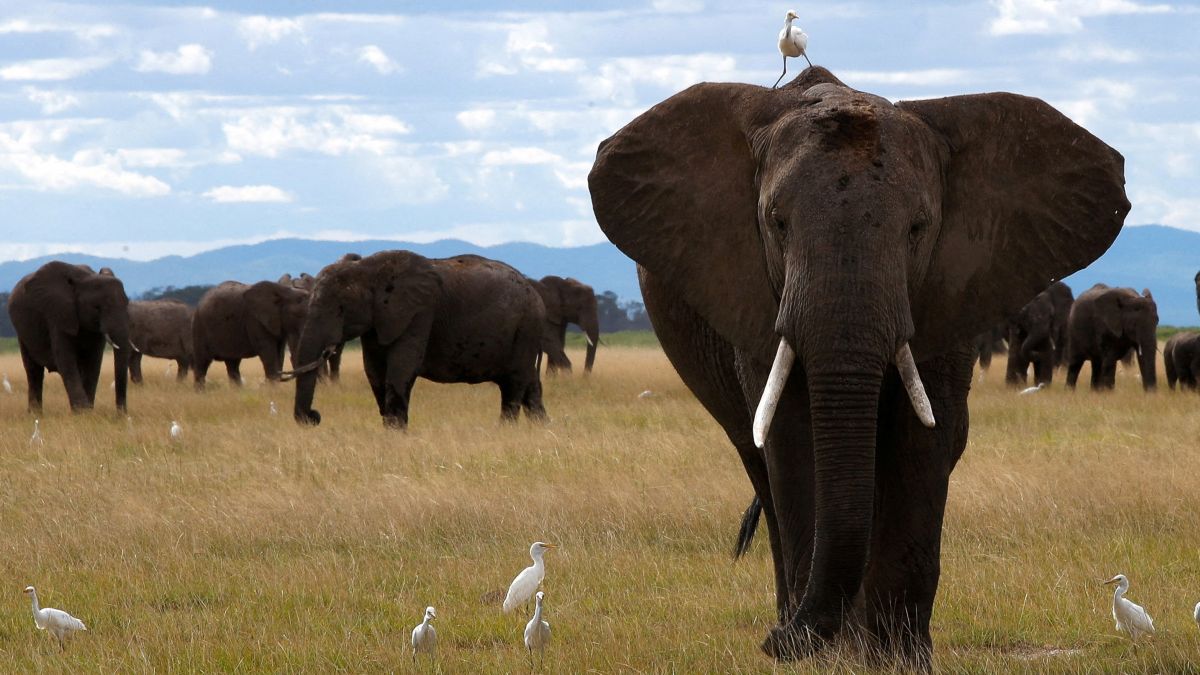Would you believe us if we said that elephants call out to another by using names? You may not believe us, but a new study reveals that the tuskers call out to each other names that they invent for their fellow mates. This makes them the only non-human species known to use language.
Other than humans, just a handful of species including dolphins and parrots have been observed addressing each other by mimicking the sound of others from their species, researchers suggested. Interestingly, the calls, made by the other species, are used to shout out their own identity and not that of the other animal.
The research was carried out on wild African Savannah elephants found in Kenya by a team of international researchers. These researchers used an artificial intelligence algorithm to analyse the calls made between two herds of elephants.
What did the researchers find?
The researchers sifted through elephant “rumbles” recorded at Kenya’s Samburu National Reserve and Amboseli National Park between 1986 and 2022. Using a machine learning algorithm, they identified 469 distinct calls, which included 101 elephants issuing a call and 117 receiving one.
“Just like humans, elephants use names, but probably don’t use names in the majority of utterances, so we wouldn’t expect 100 per cent,” said study author and Cornell University biologist Michael Pardo. “This indicates that elephants can determine whether a call was intended for them just by hearing the call, even when out of its original context,” he further added.
Analysing only the audio data, the computer model predicted which elephant was being addressed 28 per cent of the time, likely due to the inclusion of its name. When fed meaningless data, the model only accurately labelled 8 per cent of calls.
Impact Shorts
More ShortsElephants make a wide range of sounds, from loud trumpeting to rumbles so low they cannot be heard by the human ear. Names were not always used in the elephant calls. But when names were called out, it was often over a long distance, and when adults were addressing young elephants.
Adults were also more likely to use names than calves, suggesting it could take years to learn this particular talent. The most common call was “a harmonically rich, low-frequency sound,” according to the study in the journal Nature Ecology & Evolution.
How do elephants respond to recordings of their names?
When the researchers played a recording to an elephant of their friend or family member calling out their name, the animal responded positively and “energetically,” the researchers said. But the same elephant was far less enthusiastic when the names of others was played out.
Unlike those mischievous parrots and dolphins, the elephants did not merely imitate the call of the intended recipient. This suggests that elephants and humans are the only two animals known to invent “arbitrary” names for each other, rather than merely copying the sound of the recipient.
“The fact that elephants address one another as individuals highlights the importance of social bonds - and specifically, maintaining many different social bonds - for these animals,” Pardo said.
The Earth’s largest land animals are highly intelligent and known to have a keen memory, problem-solving skills and sophisticated communication. Previous research has shown that they engage in complicated behaviour - visual, acoustic and tactile gestures - when greeting each other.
“The evidence provided here that elephants use non-imitative sounds to label others indicates they have the ability for abstract thought,” senior study author George Wittemyer said. The researchers called for more research into the evolutionary origin of this talent for name-calling, given that the ancestors of elephants diverged from primates and cetaceans around 90 million years ago.
Will people be able to ’talk’ to elephants?
“That would be fantastic, but we are a long way off from that,” Wittemyer said. “We still don’t know the syntax or basic elements by which elephant vocalizations encode information. We need to figure that out before we can make deeper progress on understanding them.”
Despite our differences, humans and elephants share many similarities such as “extended family units with rich social lives, underpinned by highly developed brains,” Save the Elephants CEO Frank Pope said. “That elephants use names for one another is likely only the start of the revelations to come.”
With inputs from AFP
)